Wonder Woman, not the God of war but God of truth?
Wonder Woman, not the God of war but God of truth?
Food for thought, is the world a fallen world, with evil forces provoking evil devices in man, like in the movie Wonder Woman? Is the world, also surrounded by love tugging at the conscience of man to do the right thing? Can we learn something out of current affairs, to set things right for our survival on planet Earth? Solving society problem one prize at a time XPRIZE https://www.xprize.org/ Walk the talk, endorsing brand that demonstrates sustainable designs with Japanese code of ethics. Okamura Corporation, Japanese brand and Greenguard certified. View Okamura's contemporary guide to work styles https://bit.ly/contemporary-guide-to-work-styles
Posted by XTRA Furniture Malaysia on Khamis, 2 April 2020
Food for thought, is the world a fallen world, with evil forces provoking evil devices in man, like in the movie Wonder Woman? Is the world, also surrounded by love tugging at the conscience of man to do the right thing? Can we learn something out of current affairs, to set things right for our survival on planet Earth?
XPRIZE – Solving society problem one prize at a time?
XPRIZE aims to inspire and guide innovators to create breakthroughs enabling a world of abundance — a world where every man, woman and child can access all the energy, clean drinking water, shelter, education and healthcare they require. A nonprofit 501(c)(3) since 1994, the XPRIZE Foundation has designed and operated seventeen competitions in the domain areas of Space, Oceans, Learning, Health, Energy, Environment, Transportation, Safety and Robotics. Scientists, engineers, academics, entrepreneurs and other innovators with new ideas from all over the world are invited to form teams and compete to win a prize.
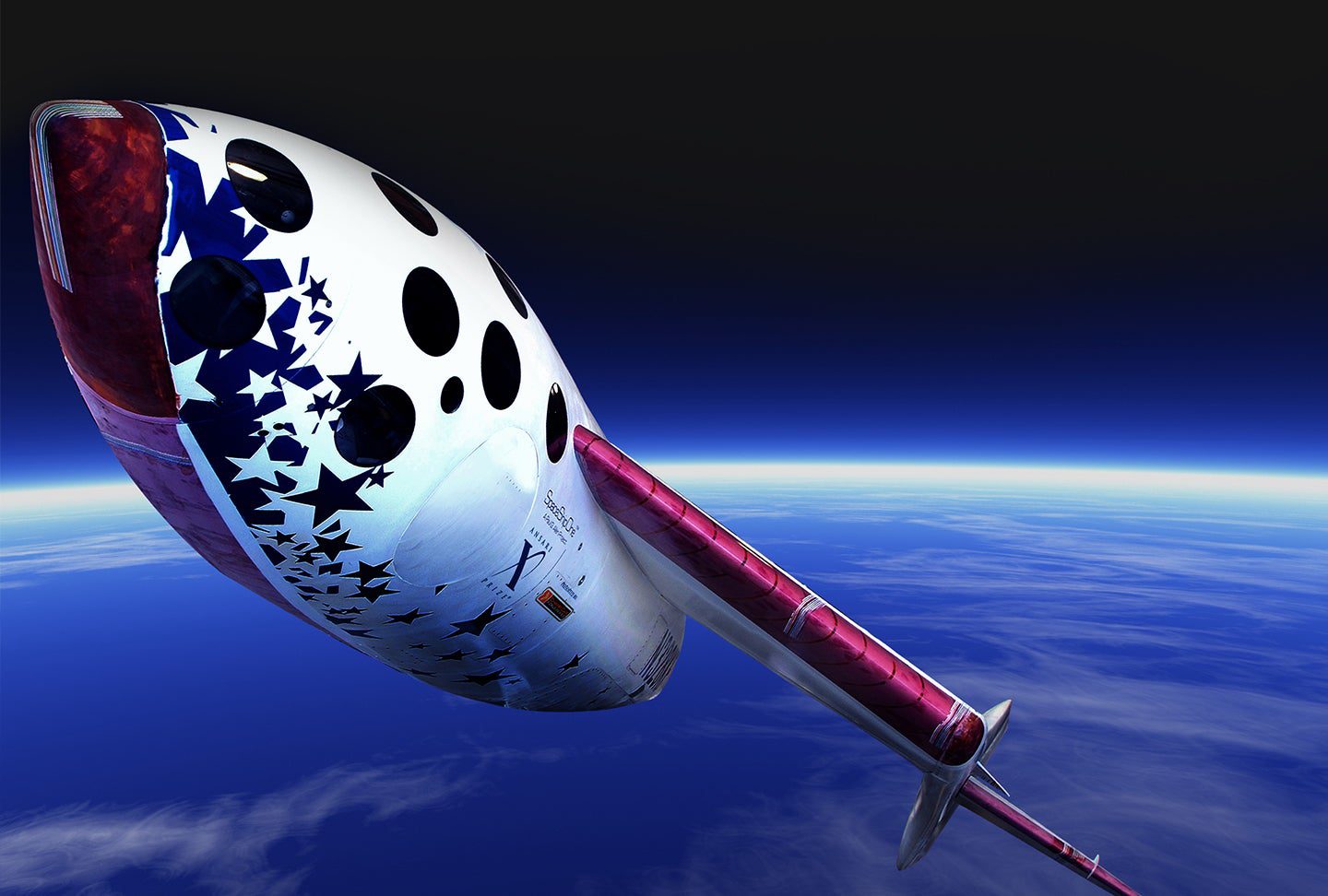
Sustainable Designs and Japanese Culture
Walking the talk, XTRA endorses brands that demonstrate sustainable designs as well as Japanese code of ethics. The Japanese culture is a multi-layered and complex system that has been developing within itself and forming new layers for thousands of years. There are definitely a few amazing things about the Japanese culture that we can all learn from.
On their Cleanliness and Manners
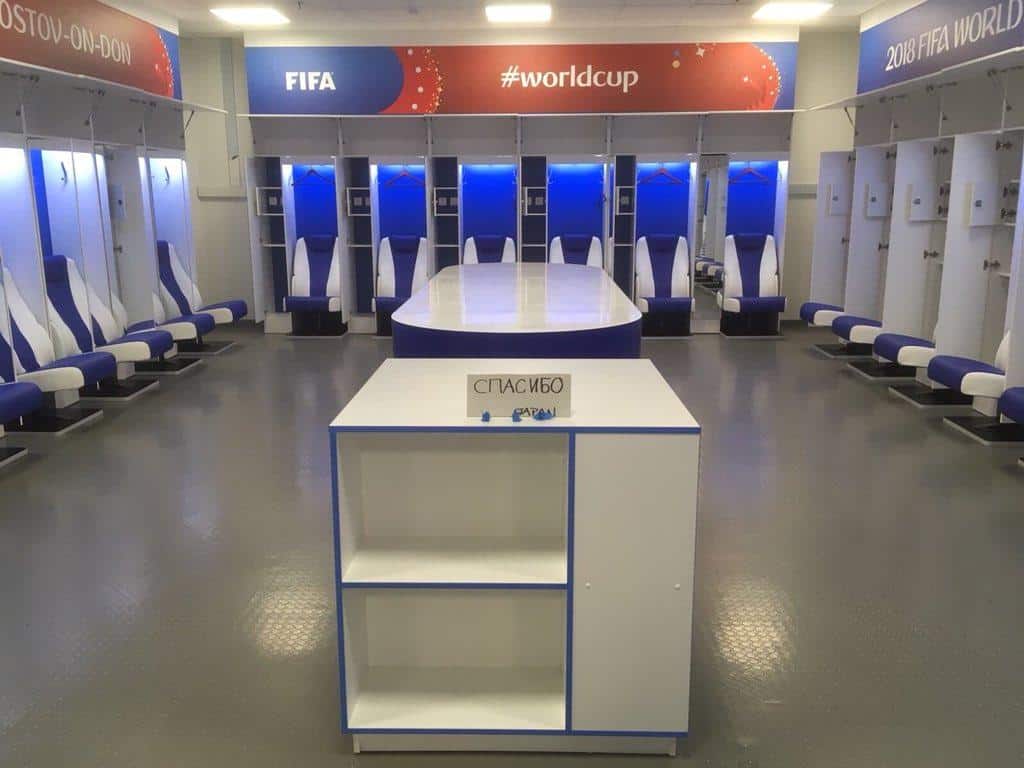
Japan suffered a devastating loss against Belgium in the knock-out round of the World Cup, after leading the game 2-0 with just 25 minutes remaining in the second half. The shocking 3-2 loss meant Japan was out of the soccer competition and headed home. Before they left, though, the heartbroken team showed an impressive display of good sportsmanship and even better manners.
On the field, the team respectfully bowed to their opponents. They then filed into the locker room to change. But before they departed, they left the room completely spotless and even left a thank you note in Russian for their hosts. Read the rest here.
On their Dignity in Face of Crisis
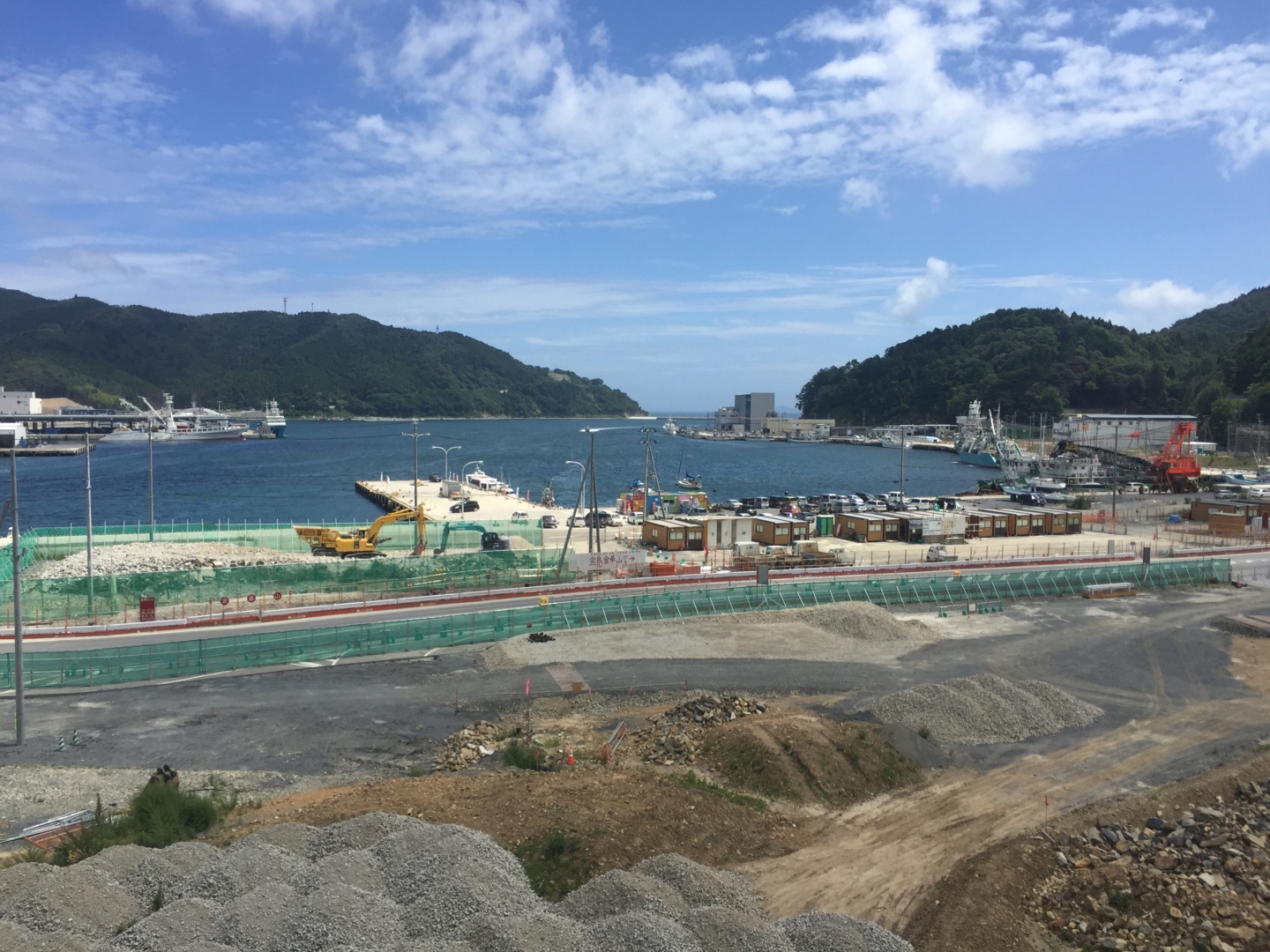
On the 11th March 2011, an earthquake struck Japan off the Pacific coast of Tohoku, in Northern Honshu, triggering a massive tsunami and the now-famous meltdown at Fukushima Daiichi Nuclear Power Plant. The earthquake, known as Higashi Nihon Daishinsai (the Great East Japan Earthquake) was the most powerful to hit Japan since records began in 1900; it resulted in the deaths of over 15,000 people, the displacement of over 220,000, significant damage to or destruction of over a million buildings, plus the deprivation of water from 1.5 million households, and of electricity from 4.4 million. The litany of devastation goes on and on; the calamity for the Japanese people was beyond imagining.
In the aftermath of the tsunami, Western media and popular perception alike were filled with a sense of amazement at the reaction of Japanese people everywhere to the disaster – at how composed, level-headed, and civic-minded they seemed to be. We perceived this in the immediate response to the disaster, the classic example being the heroism of the ‘Fukushima 50’, the workers who remained on-site at Fukushima to assess the damage and stabilize the reactor, despite being fully aware of serious risks of radiation poisoning and death, with which one might contrast the confusion of Chernobyl, where many of the firefighters knew little about radiation, and probably thought they were dealing with nothing much worse than a standard electrical fire. We also perceived it in reports of social cooperation and sympathy for the victims, and of full, uncomplaining compliance with quarantining and other radiation protocols. In the West, it would be hard to imagine such a crisis without at least some accompanying chaos, some rioting and looting and unscrupulous opportunism. But no such reports were heard from Japan. People could, and perhaps should, have been angry. Yet for the most part it seemed that they were calm, patient, and cooperative.
Read the full news: https://bit.ly/resilience-japan-reflections-onagawa
On their Recycling and Awareness of Environmental Issues
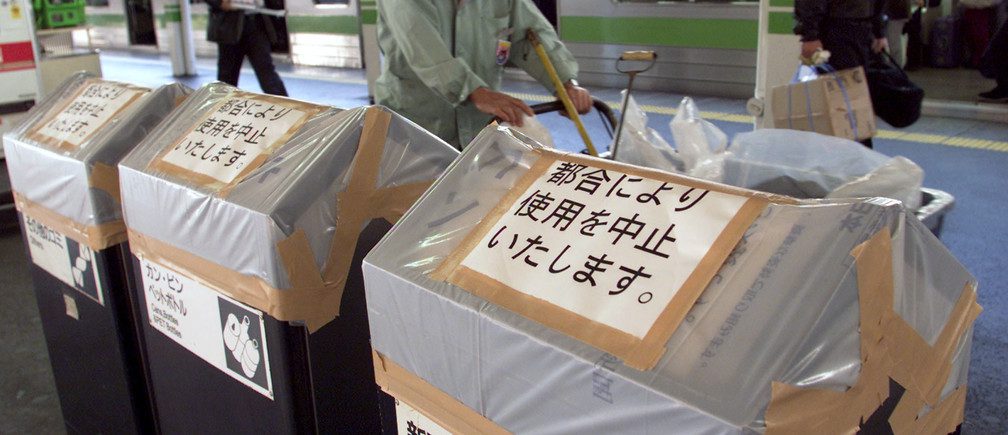
The Japanese have a word for the sense of regret they feel when something valuable is wasted: ‘mottainai’ (もったいない). It can be translated as “don’t waste anything worthy” or “what a waste”, and has come to represent the island nation’s environmental awareness.
Rooted in the Buddhist philosophy of frugality and being mindful of our actions, mottainai came to prominence in the post-war days of scarcity and is now handed down from grandparents to grandchildren.
But it’s also connected to Japan’s indigenous religion, Shintoism, in which nature and even man-made objects are imbued with their own ‘kami’ or spirit – meaning things have innate value and are not to be disrespectfully discarded.
Mottainai can be seen in the way Japanese decluttering champion Marie Kondo gives thanks to individual items of clothing before laying them in a pile for charity. It also explains why the country is a world leader when it comes to the 3Rs: reduce, reuse, recycle.
The term was also used by Kenyan Nobel Peace Prize winner Wangari Maathai, who founded the Greenbelt Movement, to encourage Africans to eliminate plastic waste.
Learn more about Japan’s sophisticated waste management system here.
Okamura – Greenguard Certified
Okamura, a Japanese brand, is an environmentally conscious company, with an environmental management system based on ISO 14001 standards covering the whole lifecycle of their products. This includes the planning, manufacturing, sales, distribution, collection, disassembly and recycling of the products. To ensure environmental thinking is embedded as an everyday part of their activities, Okamura also created what they call the Green Wave Activity program to promote environmentally responsible production. Okamura’s environmental priorities in product design and assessment ensure the delivery of safe, eco-conscious products that give consumers peace of mind.
Okamura received the GREENGUARD certification in December 2007. GREENGUARD is an indoor environment air quality standards used to certify products with low chemical emissions for the protection of interior environments. Certification is granted only to products that pass the pollutant emissions testing conducted in process-controlled dynamic environmental chambers following test protocols developed by Air Quality Sciences, Inc. The test protocols comply with ASTM, U.S. EPA, LEED, and BIFMA standards and requirements. Learn more about Okamura’s Environmental Data Sheet here.
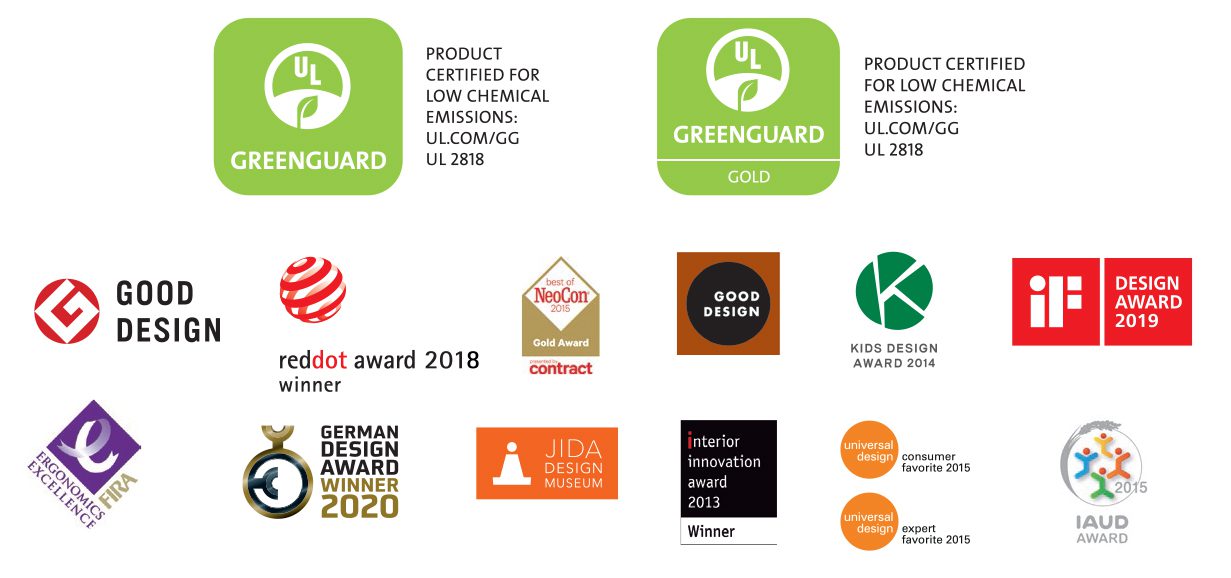
Okamura’s founding spirit is still alive today in the five principles of their company creed – “creativity,” “cooperation,” “frugality,” “saving,” and “service” – and in the basic policies that reflect that creed. From concept to completion, Okamura products are brimming with the creative spirit. Even the smallest details push the boundaries of conventional design, so Okamura creates something entirely new and wholly unique, again and again. All with the end goal to evolve the workplace, creating more productive, more creative, and happier environments.
View the latest Okamura catalogue here or their contemporary guide to work styles here. For product enquiries, please contact XTRA via your preferred method of contact here.

